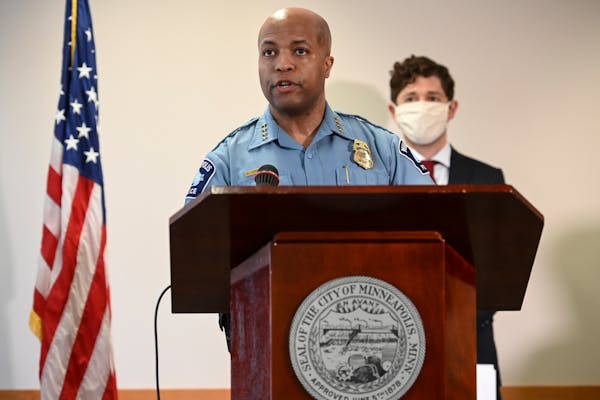Graduate school students at the University of Minnesota are pressuring faculty to respond to the nation's racial reckoning by improving the academic climate and diversifying their departments and curriculum.
Students in three departments at the U let out their long-simmering frustrations with faculty in open letters following the May 25 killing of George Floyd by Minneapolis police. They are calling on professors and department heads to update curriculum to address systemic racism and create a learning environment that is welcoming to all students, not just those who are white.
"What we see is faculty members getting tenure, becoming full professors, moving up the ladder … whereas what we're experiencing is behavior from those faculty that is incredibly problematic that has gone unaddressed for years," said Joy Hamilton, a Ph.D. candidate in the U's Communication Studies Department.
Hamilton and other communication studies graduate students are pushing for several changes within their department: They want administrators to prioritize hiring people of color for tenure-track positions and they want faculty to come up with plans to "combat anti-Blackness in their classrooms," among other things. The Communication Studies Department, they say, has long favored white students for preferred teaching assignments and research assistantships.
If their demands aren't met, the students threatened in their open letter to warn prospective graduate students and faculty hires of the department's "inability to create an equitable, anti-racist environment."
Department Chairman and Prof. Robert Walter Greene said faculty have since committed to inviting more Black and Indigenous speakers to research seminars, increasing graduate student representation at faculty meetings, and prioritizing candidates of color for open teaching positions.
The action by University of Minnesota students coincides with ongoing protests and discussions over racism and inequality that have taken place across the country since Floyd's death. Students in the Minnesota State system of public universities and community colleges have also pressured leaders to update their law enforcement programs using an "anti-racism and equity-focused lens."
Sociology students at the U called on faculty to review their curricula in early June after learning that two of the officers charged in Floyd's death were former undergraduates in the department. In a joint statement, sociology students expressed "disbelief, anger and disappointment" in response to a department message urging them to direct any media inquiries about past students to public relations staff.
"The murder of George Floyd has brought to light our department's complicity in systemic racism and anti-Blackness," the students' statement said.
The Sociology Department issued a statement a few days later, conveying regret that its initial message to students "was not clear" and "caused additional harm." The department wrote in its statement that it will develop strategies to support students of color and review curricula to ensure it "challenges systemic racism, anti-Blackness, and state violence."
In the U's Ecology, Evolution and Behavior department, graduate students say they have grown frustrated by "persistent instances of discriminatory behavior and racism," according to an open letter. The department does not have a sufficient system for students to anonymously report harassment or racism, the students say, which makes it difficult to hold faculty accountable.
Students have asked faculty to participate in a series of mediated discussions about racism in academia. They also want the department to establish a task force on diversity, equity and inclusion and are asking the larger College of Biological Sciences to hire a diversity and inclusion officer — a position that exists in other U colleges.
"Faculty are uniquely positioned to be leaders in these efforts," the students' letter said. "Faculty — especially tenured faculty — are relatively permanent members of the EEB community with much greater power, security, and institutional knowledge."
Associate Prof. Emilie Snell-Rood is working with Ecology, Evolution and Behavior leaders to address student concerns. The department recently held a mediated Zoom listening session on racism with more than 125 students, faculty and staff. These open discussions will continue, Snell-Rood said, and faculty will soon begin meeting in small groups to increase their own awareness of racism.
The department is also working to establish the requested task force and is joining students' call for the hiring of a diversity and inclusion officer in the college, she said.
"I think in general we have been dismayed to hear from the students that our graduate program, it's not experienced by all of them as a welcoming and nurturing environment," Snell-Rood said. "We join with the students in recognizing that racism is a significant problem in the field and in science and academia."

Want to share info with the Star Tribune? How to do it securely

'Safe recovery sites' would offer syringes, naloxone and more to people using drugs. The plan could be in peril.
New Minnesota GOP leaders seek peace with party's anti-establishment wing

Who is Republican Lisa Demuth, Minnesota's first House speaker of color?

